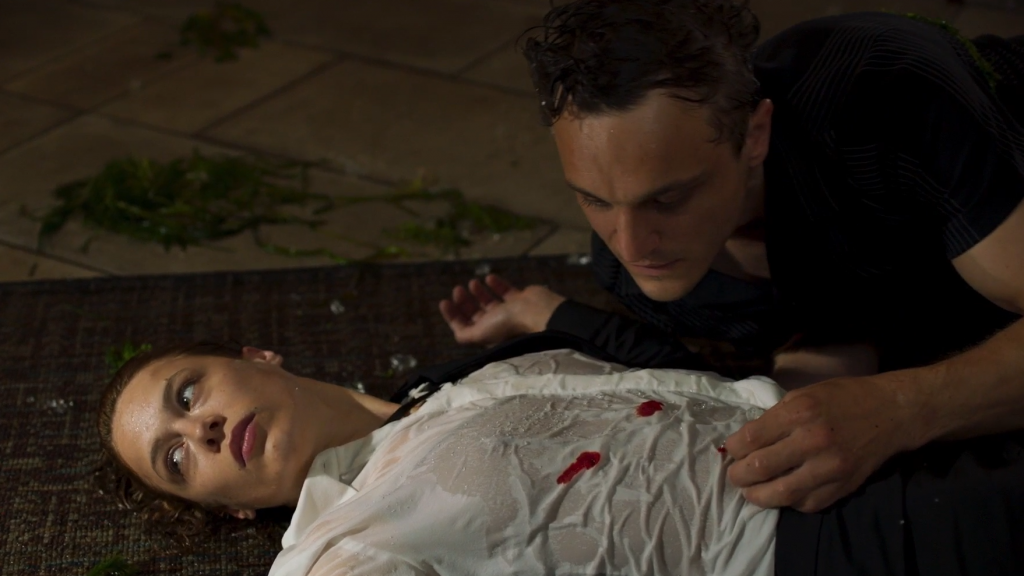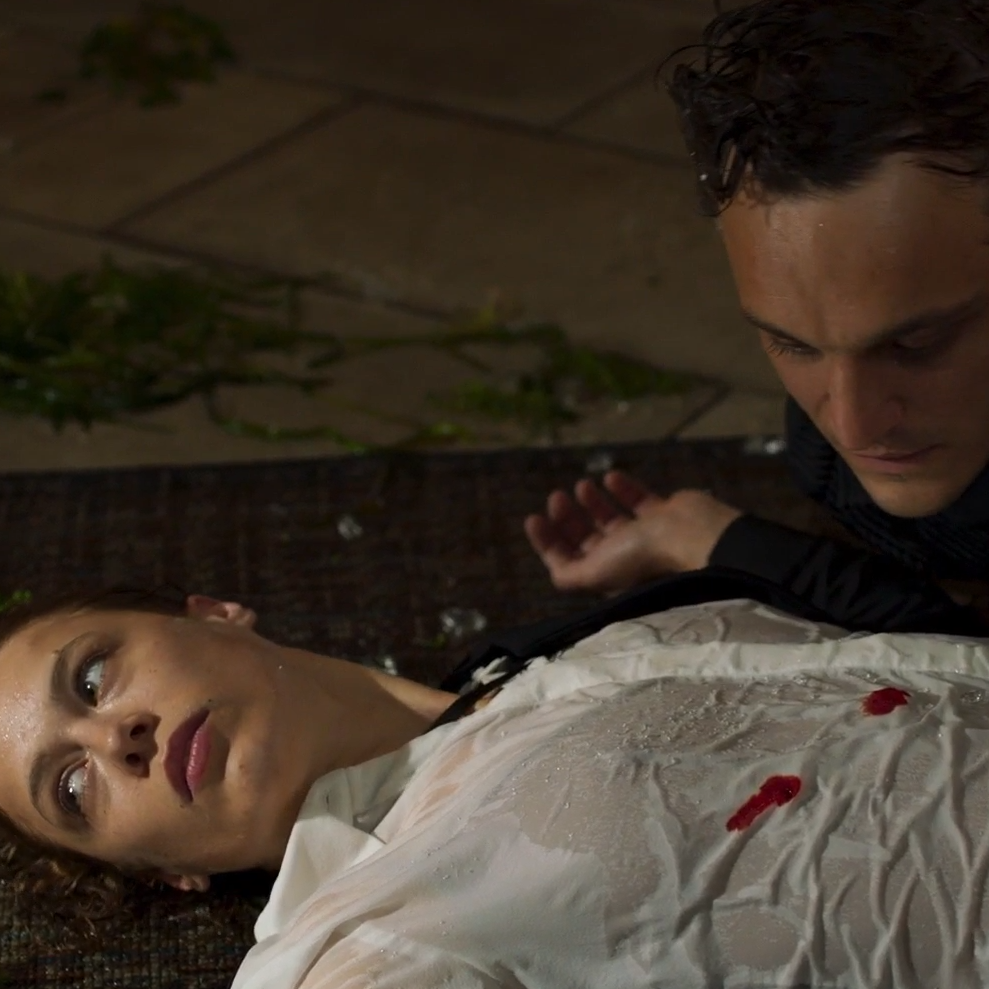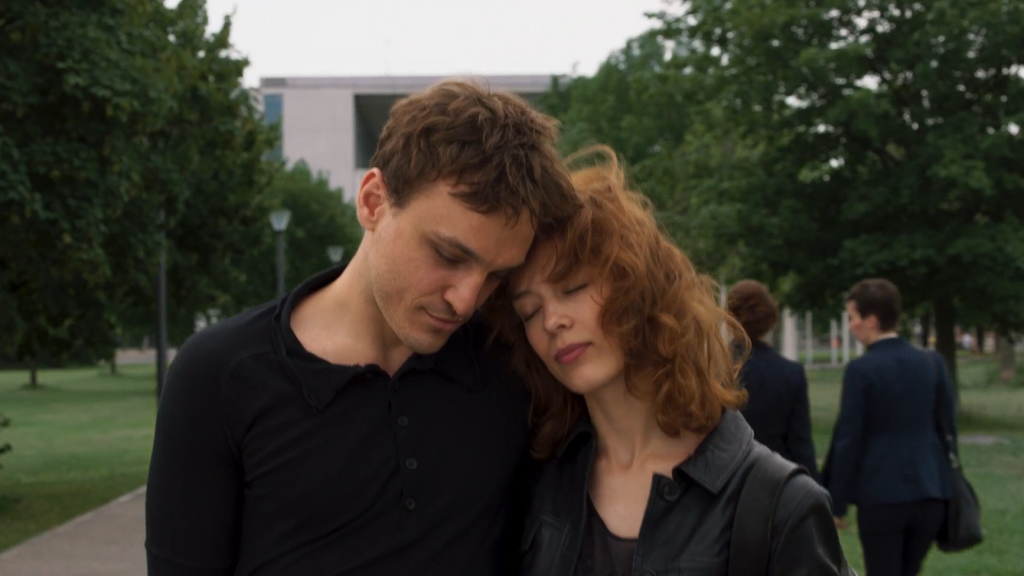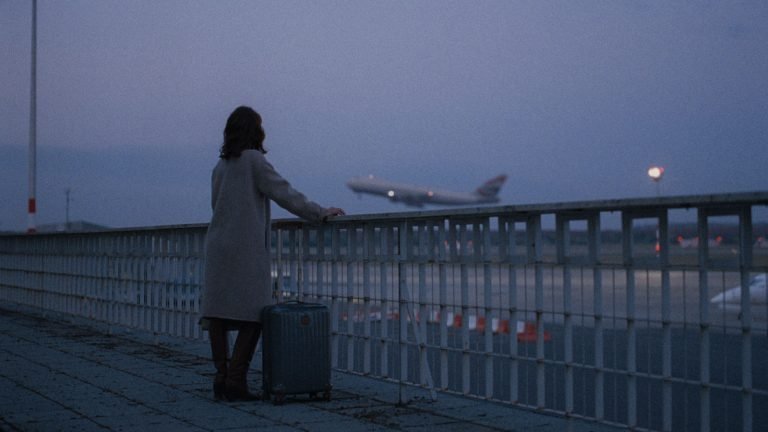'Undine' Review: Petzold Plumbs Romantic Depths
- Published on October 15, 2020
- by Igor Fishman
Christian Petzold’s newest film may appear less overtly political than last year’s Transit, and yet, somehow it speaks just as strongly to our current moment. With the US election looming it has become clearer than ever that whatever happens, the pre-Trump / pre-pandemic world is gone forever, and what comes next is a chasm of uncertainty. Undine is a film keenly in touch with this anxiety and focused on the process of rebuilding on past traumas. Petzold treats Berlin like Wong Kar-wai does Hong Kong: the city is not so much a character but its history and politics inform the romantic couplings. This political backdrop is woven in with the classic stories of the undine: mythical water spirits whose stories intertwine with those of mermaids. On these foundations, Petzold builds an unusual romance with one foot in the dream world and the other firmly planted in the cold light of day.
Undine Wibeau (Paula Beer) works at a museum giving architectural tours over a miniature model of Berlin. After being callously dumped by her boyfriend Johannes on a work break, she meets Christoph (Franz Rogowski). The actors, Beer and Rogowski, reunite having just played lovers before in Transit. Their meet-cute here is sudden, dramatic, and features a bursting aquarium. The two lay together in the debris amidst the broken glass and flopping fish with eyes locked on one another, and you could almost anticipate a rom-com musical swell to play overhead as if the austere veneer of the film ruptured alongside the fish tank. And yet, Petzold balances the dreamy/fantastical elements with a controlled sparseness that keeps the film grounded. This shifting terrain allows Undine to feel unpredictable even as it indulges its big melodramatic beats.


In a lesser film these flourishes might all build up to a conclusive ‘it was all a dream’ plot-twist. Instead, we see a complex interplay of realities, wherein Undine is just as fantastical a figure as Christoph is and vice versa. In this, Petzold asserts that love itself is an act of fantasy and myth-making in the mind of the other. For Undine, Christoph is the aquarium diver figurine come to life. For Christoph, Undine’s name is tattooed on rusted iron underwater. The film lays out its terms clearly: to love someone is to build a universe together that breaks through the bounds of reality and to lose love, is to lose one’s world. “If you leave me, I’ll have to kill you,” Undine tells Johannes at the start, the one last gambit to make him stay and a reference to the mythological undine who kill their human husbands if they are betrayed. This type of intensity pervades the film, and Petzold elevates it to its fairy tale extremes.
Running alongside this vision of love as an act of myth-making is the ever present parallel to the history of Berlin imbued in the Berlin Palace. In one of the more remarkable scenes in the film, Undine recites her tour to Christoph in the bedroom. It’s a clever moment that at once captures the intimacy of sharing your mundane routine with a partner while winding the city’s history into the lovers’ private myth. The original Berlin Palace which traced back to the 15th century was partially destroyed in WWII. Then demolished and rebuilt in modern style as the Palace of the Republic by the Soviet GDR in the 70s. Subsequently demolished again, post-reunification, and is only now in the process of finally being rebuilt as a museum with an old-style facade and a modern interior. The two myths entwined together.


As the crisis of national identity is wrapped in the Berlin Palace, so is Undine’s romantic life similarly bound to the coffee shop where Johannes broke up with her. This same coffee shop where she met Christoph, and where Johannes returns to later in the film. Petzold hints at this connection earlier with a beautiful visual flourish during Undine’s tour. The camera zooms onto the building in the lifeless city model, and as Undine looks into it like a wishing well, the image of the cafe and Johannes are interposed on top. It should be noted that her tour also includes a model representing unrealized building plans for the socialist East Berlin, which stand parallel to Undine’s unrealized possibilities with Christoph. These divisions and tears in history and romance pervade the film, as Johannes returns to win Undine back.
This historical backdrop sounds dry, but even these tours are brought to vibrant life in Paula Beer’s portrayal of Undine – easily stealing the show in nearly every shot she’s in. She at once creates a complete and complex character while tip-toeing into the dreamier more fantastical depths of the film. Rogowski is a fine compliment, but if in Transit he took center stage, his performance here largely defers to Beer while allowing their natural chemistry to work. The result is an elusive and romantic film, that both bristles at, and embraces the traditional story beats in its way, and while this slipperiness could prove frustrating for some, there is a rich world to be discovered just below its depths.
This review is part of my coverage of New York Film Festival.
Thoughts? Feedback? Contact me at hello(at)lostasterisk.com.



‘Lapsis’ Review: Skewering the Gig Economy
Noah Hutton’s sci-fi satire Lapsis may stumble at times, but its punchy riffs on the gig economy make it worth a look.

‘Just Don’t Think I’ll Scream’ Review
(link to theQuietus.com)
A staggering work that uses clips from over 400 films to tell a personal story about cinephilia, alienation, and loss, while speaking directly to our anxious moment. Read my review in The Quietus.

‘Preparations to be Together for an Unknown Period of Time’ Review
(link to UltraDogme.com)
A Sylvia Plath poem comes to life in this meditation on loneliness, infatuation, and love as it exists in our inner worlds. Read my review at Ultra Dogme.

‘Some Kind of Heaven’ Review
(link to InReviewOnline.com)
Equal parts Errol Morris and David Lynch, this oddball journey through the world’s largest retirement community reveals a startling portrait of American alienation. Read my review at In Review Online.

The Ten Best Films of 2020
With 2020 finally drawing to a close, lets take one last look at the wonderful films that came out in this otherwise devastating year.

‘Black Bear’ Review: Aubrey Plaza’s Time to Shine
Aubrey Plaza shows off her considerable talents and range, overcoming a messy script to once again prove her mettle as a formidable dramatic lead.
